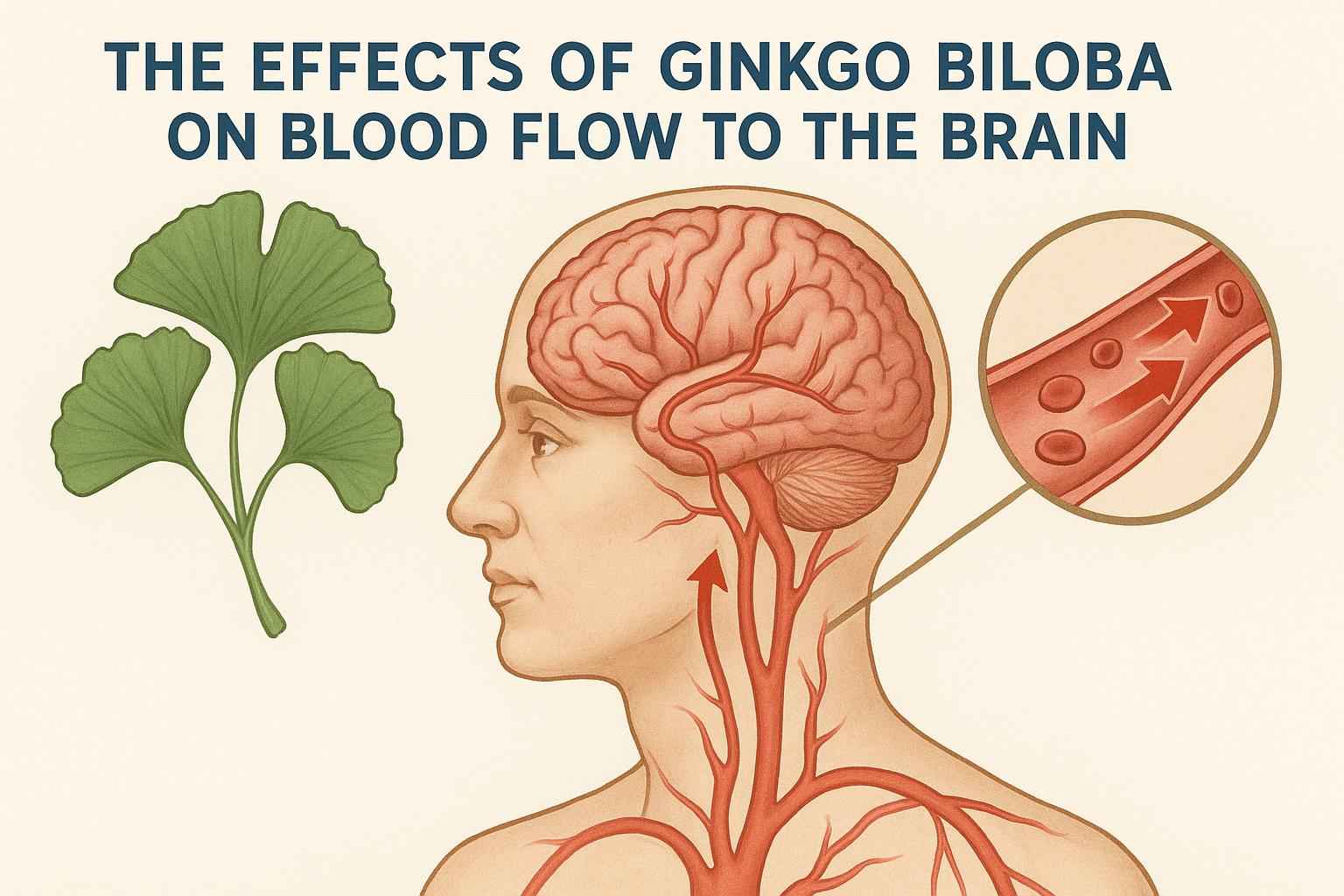Introduction to Ginkgo Biloba
Ginkgo biloba, a unique and fascinating tree native to China, has a rich history of use in traditional medicine. Its leaves and seeds have been employed for centuries to address various health issues, and its utilization continues today, particularly in the fields of cognitive enhancement and circulatory health. Despite its ancient origins, modern science is still unraveling the complexities of this plant, especially concerning its potential impact on blood flow, particularly to the brain.
Understanding Blood Flow to the Brain
The brain, an incredibly vital organ, depends greatly on efficient blood flow to perform optimally. The circulatory system delivers oxygen and essential nutrients to the brain, fuelling numerous cognitive processes crucial for daily functioning. Ensuring adequate blood supply is necessary for maintaining cognition and overall brain health, as insufficient circulation may result in problems ranging from mild cognitive impairments to severe neurological disorders.
Mechanisms of Ginkgo Biloba
Ginkgo biloba’s ability to potentially enhance blood flow is attributed to its complex composition, which includes flavonoids and terpenoids. These components are believed to possess significant antioxidant properties, protecting blood vessels against oxidative damage. By reducing oxidative stress, these compounds may promote healthier blood vessels, leading to enhanced circulation. Such improvement in circulation could play a critical role in supporting brain health, given the brain’s high demand for oxygen and nutrients.
Research Evidence
Several studies have explored the impact of Ginkgo biloba on cerebral blood flow, yielding mixed but intriguing results. Some research suggests a positive correlation, indicating that Ginkgo biloba may improve both cerebral blood flow and cognitive functions, particularly in older adults. For example, one study highlighted improvements in mental performance and increased brain circulation in participants taking Ginkgo biloba supplements compared to those who did not (source).
Other studies, however, reveal that while there may be some benefits, these effects can vary significantly based on factors such as dosage, individual health status, and age. This variability suggests the need for further investigation to pinpoint the precise mechanisms and conditions under which Ginkgo biloba is most effective.
Practical Implications
Despite the ongoing research, Ginkgo biloba has become a popular supplement worldwide. Many individuals report experiencing enhancements in mental alertness and cognitive clarity. However, it’s crucial to consider that Ginkgo biloba, like any supplement, is not devoid of potential interactions with medications or side effects. Therefore, it is advisable for individuals to consult healthcare professionals before incorporating Ginkgo biloba into their supplement regimen to ensure it complements their health needs safely.
Additionally, the supplement’s effects may not manifest uniformly, with some individuals noticing significant improvements while others may observe minimal changes. Thus, personal experience can vary, and expectations should be managed accordingly.
Conclusion
Ginkgo biloba continues to be a subject of scientific intrigue, especially concerning its potential role in enhancing cerebral blood flow and cognitive function. Although promising, the existing evidence highlights the need for more comprehensive studies to fully understand its capabilities and limitations. As research advances, Ginkgo biloba remains an area of interest for those seeking natural methods to support brain health and cognitive vitality. Balancing traditional wisdom with modern scientific inquiry can potentially lead to a clearer understanding of how this ancient remedy can be integrated into contemporary health practices effectively and safely.

